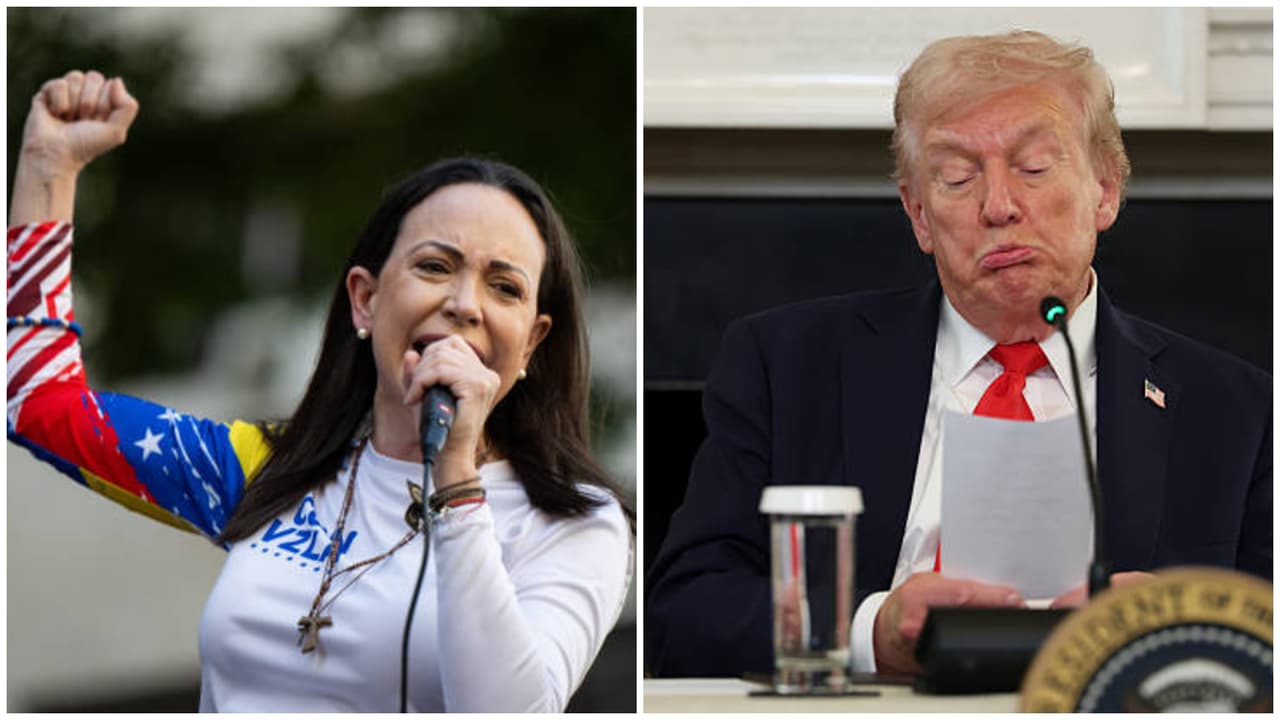The Nobel committee on Friday snubbed US President Donald Trump and awarded Maria Corina Machado with peace prize for the year 2025.
When the 2025 Nobel Peace Prize was announced, many were surprised that it went to María Corina Machado and not to Donald Trump, who has long sought the honor. But on deeper reflection, the choice makes profound sense. The Nobel Committee is not a popularity contest or a platform for self-promotion — it is intended to honor sustained, courageous, and morally grounded work toward peace, justice, and human dignity.
A life of struggle under risk Machado did not campaign for the prize; she lived its values under fire. In Venezuela, she has faced personal danger, political bans, and forced hiding, yet remained in her country. She did not turn away when the dictatorship threatened her — she stayed, persisted, and made her stand visible to Venezuelans. Her fight has centered on empowering citizens, defending democratic rights, and attempting a peaceful transition from authoritarian rule to rule of law. Her story is not about publicity; it is about sacrifice, consistency, and moral witness in a highly hostile environment. That is the kind of courage that the Nobel Peace Prize has historically sought to reward.
Democracy versus deals Trump’s claims for a Nobel rest on deals, maneuvers, and declarations: peace accords, ceasefire proposals, and transactional diplomacy. But peace cannot rest solely on deals; it must rest on just foundations, institutions, respect for human rights, and legitimacy in the eyes of those oppressed. Machado’s work is rooted in structural transformation — challenging a system in which elections are hollow, freedoms are erased, and opposition is criminalized. She seeks not a negotiated truce with power, but a genuine rebalancing, where authority derives from the people, not from force.
The integrity of the prize The Nobel Peace Prize is meant to recognize “the person who shall have done the most or the best work for fraternity among nations, for the abolition or reduction of standing armies and for the holding and promotion of peace congresses” (as per Nobel’s will) . While Trump’s foreign policy and peacemaking efforts draw attention, critics argue that many of his actions were divisive, unilateral, and at times undermined multilateral frameworks. Some of his interventions have been contested or incomplete. In contrast, Machado’s work is inseparable from the people she represents and the fragile democracy she defends — it is grounded in the internal contest of power, not in external diplomacy.
Symbolism matters In awarding the prize to Machado, the Nobel Committee made a symbolic gesture: it affirmed that resisting authoritarianism from within, at personal risk, has more weight than high-visibility gestures from powerful capitals. It sends a message: the Nobel is for those who suffer for peace, not merely those who claim to broker it. It amplifies the voice of millions of Venezuelans who have endured repression, inflation, shortages, and exile — voices that often go unheard in diplomatic corridors or partisan media campaigns.
Not a rejection of diplomacy, but a standard This decision does not say that diplomacy or deals are worthless — they can be vital. But by awarding Machado, the prize insists that diplomacy must be rooted in justice, and that peace without freedom is hollow. It raises the bar: you cannot just promise peace; you must live it under adversity, in the face of repression, on behalf of the vulnerable.
In short, María Corina Machado won because her life is the embodiment of what the Nobel Peace Prize seeks to honor: tireless courage in defending human rights, inclusive democracy, and nonviolent transformation, even when the cost is personal danger. Trump did not win because no number of deals or claims can substitute for a lifetime of integrity in struggle, especially when the weight of history and moral legitimacy is on the side of those who resist tyranny, not those who negotiate it from the heights of power.
